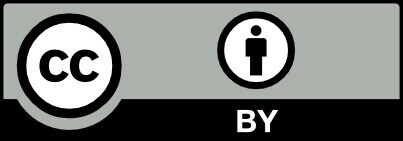Responsibilities
Responsibilities of Editors
Editors hold full authority and responsibility for accepting or rejecting a manuscript for publication.
They must not have any conflicts of interest with the authors of the manuscripts they evaluate or with the research topics under review.
It is the editors’ responsibility to ensure that necessary corrections or retractions are published when errors are detected, and to maintain the anonymity of reviewers throughout the evaluation process.
Kün places great emphasis on ensuring that editorial decisions are not influenced by commercial or financial interests.
Publication Ethics Obligations
The editorial board upholds and enforces the highest standards of publication ethics.
In order to maintain academic and ethical integrity, the board is always open to publishing corrections, clarifications, retractions, and apologies when necessary.
The editorial board exercises maximum diligence to prevent plagiarism and the use of falsified data.
Kün collaborates closely with other publishers, academic institutions, and industry organizations to establish standards regarding ethical concerns, errors, and retractions, and agrees to cooperate with legal and institutional investigations when required.
Responsibilities of Reviewers
Reviewers are expected to conduct their evaluations objectively and impartially.
They must not have any conflicts of interest with the authors, the research itself, or the institutions providing financial support for the study.
Reviewers should identify and report any relevant published works that have not been cited by the authors.
All manuscripts under review must be treated as confidential documents.
Reviewers contribute to the editorial decision-making process and are expected to maintain confidentiality throughout.
They should complete their evaluations within a reasonable timeframe and promptly submit their reports to the editors.
They must not have any conflicts of interest with the authors, the research itself, or the institutions providing financial support for the study.
Reviewers should identify and report any relevant published works that have not been cited by the authors.
All manuscripts under review must be treated as confidential documents.
Reviewers contribute to the editorial decision-making process and are expected to maintain confidentiality throughout.
They should complete their evaluations within a reasonable timeframe and promptly submit their reports to the editors.
Responsibilities of Authors
Authors must include a complete list of references at the end of their manuscripts, citing all sources used during the preparation of the paper.
They are required to clearly disclose all financial support received for their research and declare any potential conflicts of interest.
Authors must not engage in plagiarism or the fabrication or falsification of data.
All submissions are screened using plagiarism detection software.
Authors are also obliged not to submit the same research to more than one journal simultaneously.
In studies involving potential hazards, human or animal subjects, or any situation requiring ethics committee approval, authors must obtain prior permission from the relevant ethics committee.
For such studies, details of the ethics approval (name of the committee, date, and approval number) must be provided in the “Methods” section and also indicated on the final page of the manuscript.
For case reports, authors must confirm that informed consent has been obtained from participants and must include this information within the article.
All works submitted to or published in the journal must comply with copyright regulations.
If copyrighted materials are used, authors must obtain permission from the copyright holder or organization prior to publication.
Authors are expected to participate actively in the peer review process, take reviewer comments into account, and implement necessary revisions.
They must provide a cover letter to the Editor explaining all corrections and revisions made.
If authors disagree with reviewers’ comments or suggestions, they must explain their reasons in the same correspondence.
In scientific research articles, all listed authors must have made a significant contribution to the research.
Authors affirm that all data presented in the manuscript are accurate and original.
In necessary cases, all authors share responsibility for withdrawing their manuscripts or facilitating corrections when errors are identified.
Authors must include a complete list of references at the end of their manuscripts, citing all sources used during the preparation of the paper.
They are required to clearly disclose all financial support received for their research and declare any potential conflicts of interest.
Authors must not engage in plagiarism or the fabrication or falsification of data.
All submissions are screened using plagiarism detection software.
Authors are also obliged not to submit the same research to more than one journal simultaneously.
In studies involving potential hazards, human or animal subjects, or any situation requiring ethics committee approval, authors must obtain prior permission from the relevant ethics committee.
For such studies, details of the ethics approval (name of the committee, date, and approval number) must be provided in the “Methods” section and also indicated on the final page of the manuscript.
For case reports, authors must confirm that informed consent has been obtained from participants and must include this information within the article.
All works submitted to or published in the journal must comply with copyright regulations.
If copyrighted materials are used, authors must obtain permission from the copyright holder or organization prior to publication.
Authors are expected to participate actively in the peer review process, take reviewer comments into account, and implement necessary revisions.
They must provide a cover letter to the Editor explaining all corrections and revisions made.
If authors disagree with reviewers’ comments or suggestions, they must explain their reasons in the same correspondence.
In scientific research articles, all listed authors must have made a significant contribution to the research.
Authors affirm that all data presented in the manuscript are accurate and original.
In necessary cases, all authors share responsibility for withdrawing their manuscripts or facilitating corrections when errors are identified.
Kün: Journal of Literary and Cultural Studies is licensed under Creative Commons Attribution 4.0 International (CC BY 4.0).
